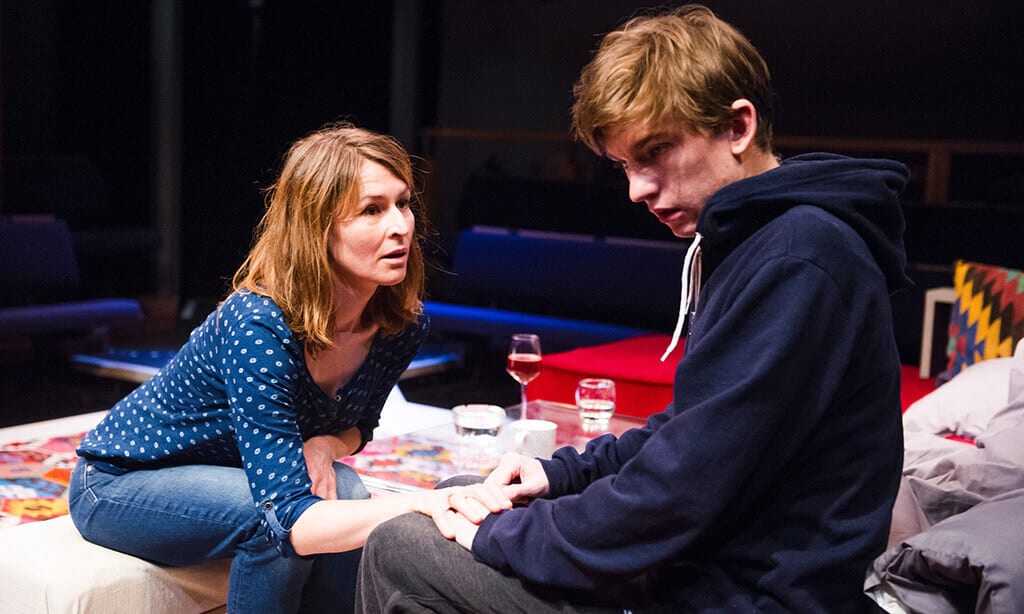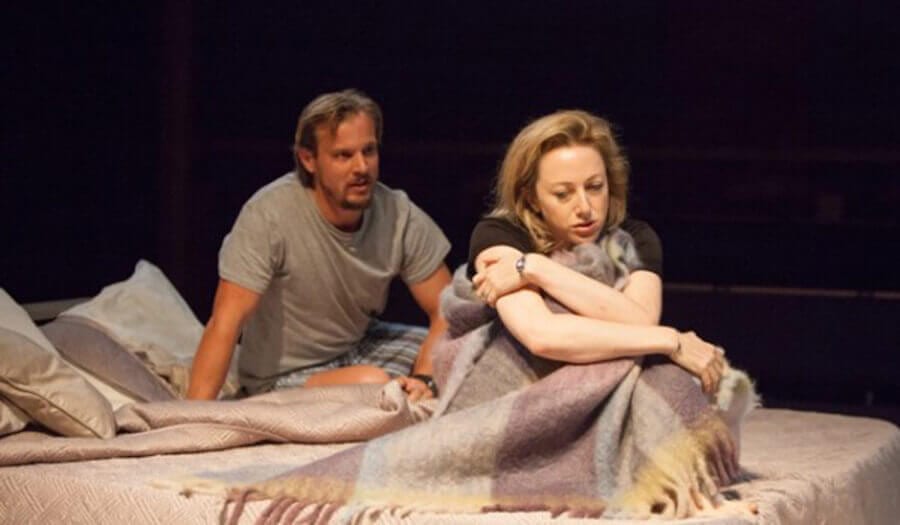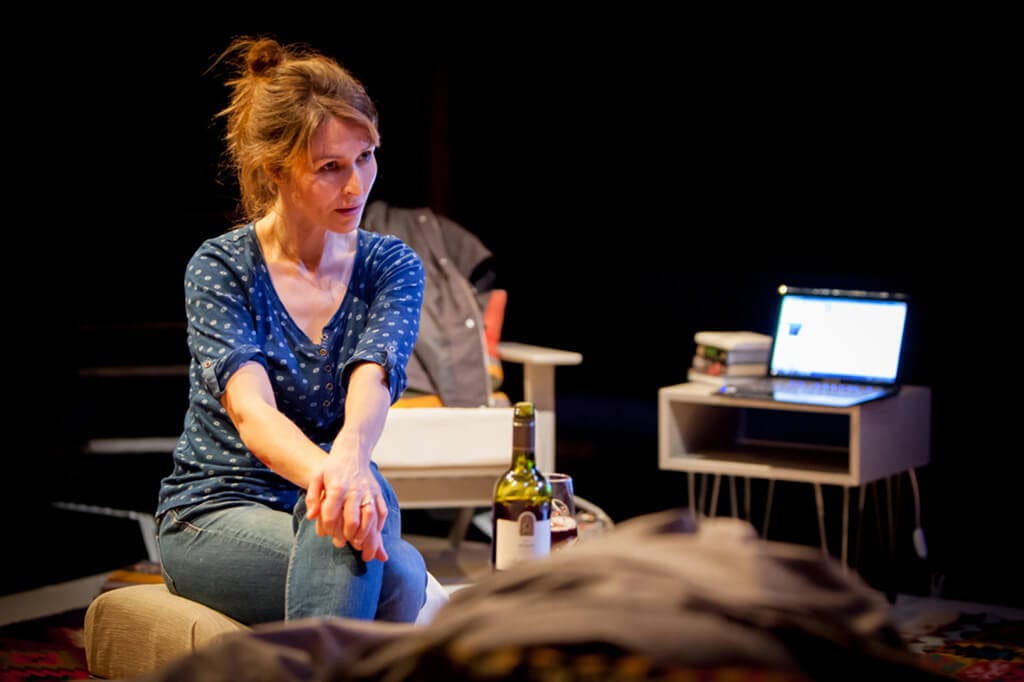This is an amazing evening. The play is serious and thought-provoking, yet for most of its running time is side-splittingly funny. The production switches brilliantly between altercations in which neither side listens to or understands the other and occasional moments of relatively quiet reflection.
I don’t recall ever seeing a play in which so many people talked, so loudly, all at once, at the same time. But we are never in any doubt about what they are all saying, and how clearly what they are saying is having little effect on the others present.
The situation is that Bea has walked out on her husband and two young sons in Melbourne and flown in both senses of the word to England, pausing on the way in Kuala Lumpur to pick up a one-night stand.
Bea is mysterious, legitimately so, because we are never quite certain whether she knows exactly what she wants or has only a very misty idea.
In London she meets up with various family members, none of whom are willing, even able, to accept that she has, or at any rate firmly states she has, no qualms about what she has done. She did not feel right with husband and sons, therefore she has to go elsewhere to find fulfilment. Had she died, her husband would have had to bring up his sons alone and would have made a very good job of it. So what’s the difference?
Of the family, Kate in particular, has no concerns about Bea’s abandoned husband. Her firm conviction is that the sons should be with their mother. Only Bea can care for them properly. Therefore Bea should have established her legal right to take them with her and then done exactly that. Kate is furious and uncomprehending when Bea says they are better off where they are.
The play consists principally of one-to-one or one-to-two arguments, with occasional more crowded and riotously noisy scenes. The mental hoops they jump through trying to convince each other have the audience helpless with laughter. But there is never any sense that this is mere social comedy or a farcical treatment of a serious subject.
The ending may well come as a surprise. I’m not giving anything much away when I say that it looks as if there might be some sort of resolution, but we have no idea how it might be achieved––let alone whether it will be a happy one.
Anyone who has ever felt that they are stuck in a situation which they cannot usefully influence or amend will know pretty well how Bea feels.
This is not to say that that this is in any way a grim play. The assumption underlying what we see and here, that is that children, if helped properly by those who are looking after them, whoever they may be, will adapt to unconventional situations and survive them. And it will be better for everyone in the long run if mixed up adults manage to sort themselves out.




